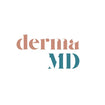Melasma
Diagnosis:
A visual exam of the affected area is often enough to diagnose melasma. Dermoscope which is a skin’s microscope and woods lamp aids in differentiating it from other causes of pigmentation.
What can be done to get rid of it?
Melasma tends to be very resistant to treatment, and may recur frequently. Superficial type of melasma responds better when compared to deep type. Melasma that occurs during pregnancy may go away in a few months or it could be persistent.
Some of the measures to get rid of it are:
● Strict sun protection is a must. This often involves wearing a wide-brimmed hat while outdoors, seeking shade, and applying a broad-spectrum sunscreen (SPF 30 or higher) every 3-4 hours throughout the day. Physical sunscreens which contain zinc oxide, titanium dioxide, iron oxide are tinted and protects from visible and infrared light too.
● Avoid excess heat.
● Medical treatments containing skin lightening agents such as glycolic acid, kojic acid, arbutin,tranexamic acid, etc.
● Chemical peels - often begin as a monthly treatment using low concentration formulas and progress to applications at higher concentrations.
● Microneedling.
● PRP.
● Lasers - give variable results.
Avoid:
● Aggressively scrub at your skin.
● Homemade remedies or parlour procedures.
● Over the counter medications, steroid creams or creams recommended by pharmacists.
● Prolonged use of creams that contain hydroquinone and steroids will further damage your skin and increase the pigmentation.
Watch Our Introduction Video
Instagram Video
Top Treatment we provide: Beard transplant | Botox | Carbon laser peel | Chemical peels | Dutasteride microneedling | Eyebrow shaping | Lip fillers | HIFU treatment | Hair Medispa | Hair transplant | Injection Lipolysis | Laser hair Removal for men | Laser Hair Removal in Females | Medifacials | Mesobotox | Mesotherapy | Microdermabrasion | MNRF treatment | Nutritionist and diet plans | Picosecond laser toning | Profhilo and skin boosters | PRP face | Hair Fall Treatment PRP or GFC | Skin tightening | Scalp micropigmentation | Scalp threads | Skin Care Routine | Tattoo removal | Thread - Lifts
Skin & Hair Concerns: Acne | Acne scars | Allergies | Ageing | Alopecia areata | Androgenetic alopecia | Dandruff | Dark circles | Dark lips | Dark underarms | Double Chin | Eczema | Freckles | Fungal infections | Hair loss or thinning | Hyperhydrosis | Keloids | Keratosis Pilaris | Lichen Planus | Melasma | Moles | Nail infections | Pigmentation | Pores | Pregnancy skin care | Premature greying | Psoriasis | Rosacea | Sagging | Skin cancer | Stretch marks | Skin Tags | Tanning | Vitiligo | Warts
- Choosing a selection results in a full page refresh.








